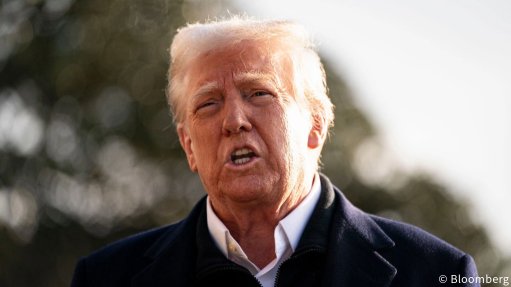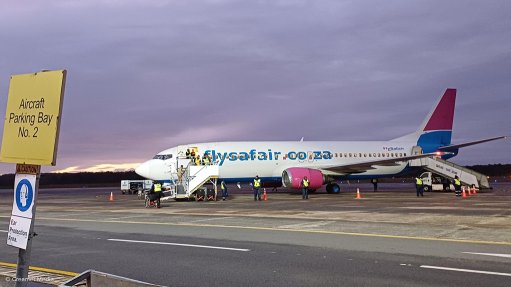Same taxi, different driver
The following is from an article from the Seven Pillars Institute: “Some of the company’s personnel pocketed a brokerage percentage from suppliers, overloaded ships with personal cargoes for trading, diluted precious metals to produce more volume, colluded with other traders and inspectors, and bribed local government officials.”
It sounds depressingly familiar but, in fact, the article is about the Dutch East India Company (the VOC), the same company that landed Van Riebeeck hulle at the Cape, and why it collapsed into corruption. Institutional and government corruption are particularly repulsive, since the parties concerned are spending money that was obtained from a tax on the public. They spend this money unfairly and carelessly, all to enrich a small segment of the population without, in fact, providing value for money.
The worst part is that those who act corruptly hardly bother to disguise their actions; instead, they challenge people (the press, the public) to “prove it” or catch them out. The recent collapse of civil engineering construction firms such as Group Five and Basil Read is not because they were not good at what they do – history has shown they were quite good – but because government expenditure on infrastructure has plummeted. This is in no small measure due to the fact that a lot of money has been lost in corrupt projects. I have no need to list them; they are all well known. My small consulting practice is still owed R250 000 in fees from a hospital project in the North West. Halfway through the project, it was discovered that funds had been depleted by payments to certain contractors. As a result, they stopped paying our fees. You can write to who you want, from MEC to government Minister, and they will neither acknowledge your communication nor do anything about it. Tough takkie.
One of the worst areas of corruption is in State tenders. From a recent request for quotation from the Department of Public Works (DPW), I quote the following instruction to tenderers: ‘It must be noted that the DPW reserves its right to: 1.5.1. award the whole or a part of this tender; 1.5.2. split the award of this tender; 1.5.3. negotiate with all or some of the shortlisted bidders; 1.5.4. award the tender to a bidder other than the highest-scoring bidder where objective criteria allow; 1.5.5. to reject the lowest acceptable tender received; and/or 1.5.6. cancel this tender.”
Simply put, this means that the DPW can award the tender to whoever it wants and at any price that it wants. One could argue that this is not so; the DPW would be more than strict in its awards. But how could anybody be sure of this with the conditions as above? Why not write: “The DPW can award the tender to whoever it wants and at any price that it wants”, with the caveat: “and later will produce sufficient documentation to show they acted in good faith”?
We talked about improving the South African economy and service delivery and infrastructure investment at a time when large construction companies were facing liquidation even before the current crisis. Now it is beyond worse. The rest of the world was not on as rocky a road as we were, and they predict bad times ahead. How much worse will ours be?
Now, the purpose of this column is not to just rabbit on and on with no point. I have a suggestion to all my fellow small engineering firms, as follows: remember that the VOC was the first company in the world considered by many to be the forerunner of modern corporations. In many respects, modern-day corporations are all the ‘direct descendants’ of the VOC model. Corrupt practices brought it to collapse. I say to my fellow small engineering firms: avoid supporting corruption. Pay your bills on time. Do not give out bribes. This is a time which we have never seen before. For all we know, we are all doomed, businesswise, anyway. Let this not be our fault.
Article Enquiry
Email Article
Save Article
Feedback
To advertise email advertising@creamermedia.co.za or click here
Comments
Press Office
Announcements
What's On
Subscribe to improve your user experience...
Option 1 (equivalent of R125 a month):
Receive a weekly copy of Creamer Media's Engineering News & Mining Weekly magazine
(print copy for those in South Africa and e-magazine for those outside of South Africa)
Receive daily email newsletters
Access to full search results
Access archive of magazine back copies
Access to Projects in Progress
Access to ONE Research Report of your choice in PDF format
Option 2 (equivalent of R375 a month):
All benefits from Option 1
PLUS
Access to Creamer Media's Research Channel Africa for ALL Research Reports, in PDF format, on various industrial and mining sectors
including Electricity; Water; Energy Transition; Hydrogen; Roads, Rail and Ports; Coal; Gold; Platinum; Battery Metals; etc.
Already a subscriber?
Forgotten your password?
Receive weekly copy of Creamer Media's Engineering News & Mining Weekly magazine (print copy for those in South Africa and e-magazine for those outside of South Africa)
➕
Recieve daily email newsletters
➕
Access to full search results
➕
Access archive of magazine back copies
➕
Access to Projects in Progress
➕
Access to ONE Research Report of your choice in PDF format
RESEARCH CHANNEL AFRICA
R4500 (equivalent of R375 a month)
SUBSCRIBEAll benefits from Option 1
➕
Access to Creamer Media's Research Channel Africa for ALL Research Reports on various industrial and mining sectors, in PDF format, including on:
Electricity
➕
Water
➕
Energy Transition
➕
Hydrogen
➕
Roads, Rail and Ports
➕
Coal
➕
Gold
➕
Platinum
➕
Battery Metals
➕
etc.
Receive all benefits from Option 1 or Option 2 delivered to numerous people at your company
➕
Multiple User names and Passwords for simultaneous log-ins
➕
Intranet integration access to all in your organisation


















